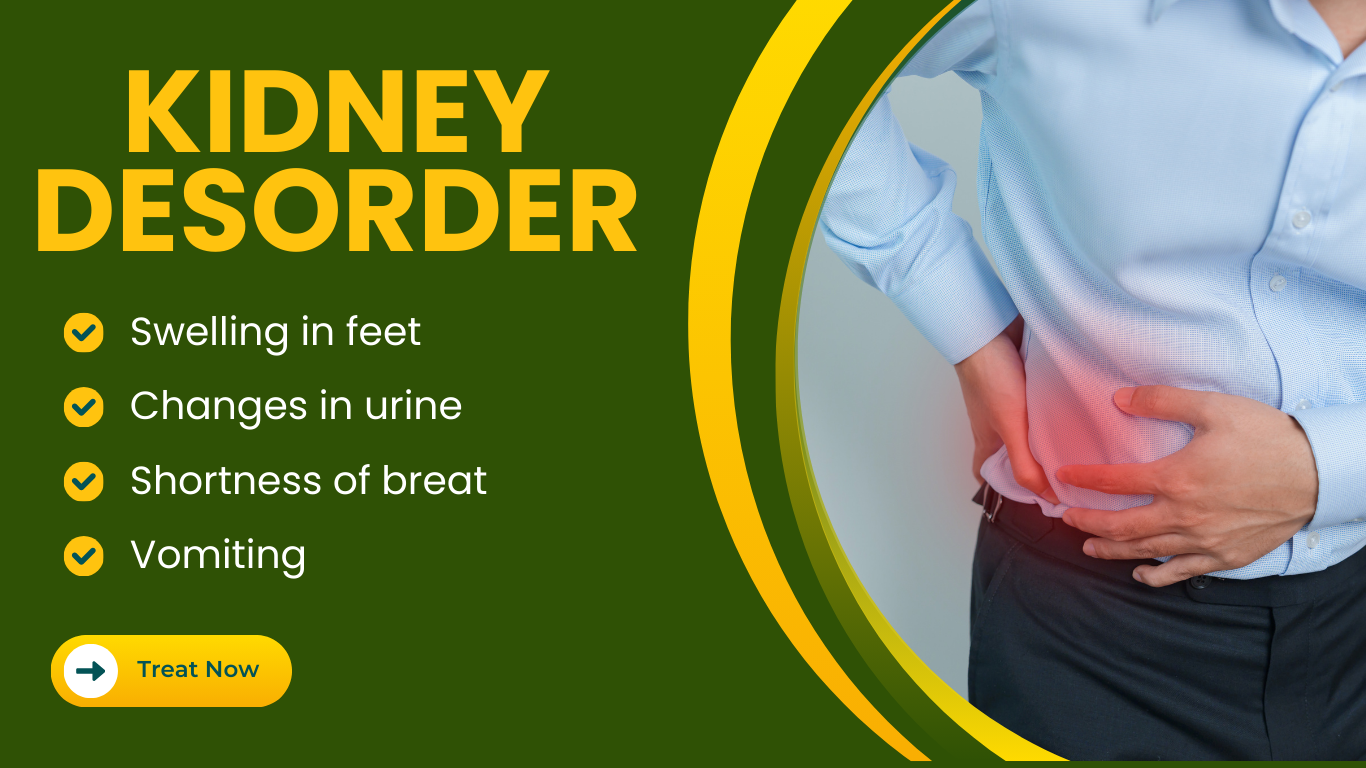1. What are kidney disorders?
Kidney disorders are medical conditions where the kidneys cannot filter blood properly, balance fluids, or remove waste from the body.
2. What are the common causes of kidney disease?
-
Diabetes
-
High blood pressure (Hypertension)
-
Kidney infections
-
Genetic conditions (like Polycystic Kidney Disease)
-
Long-term use of painkillers or certain medicines
3. What are the symptoms of kidney problems?
-
Swelling in feet, ankles, or face
-
Fatigue or weakness
-
Changes in urine (foamy, less urine, blood in urine)
-
Loss of appetite, nausea, vomiting
-
Shortness of breath or chest pain
4. How can we prevent kidney disease?
-
Control blood sugar and blood pressure
-
Drink enough water (but not excess)
-
Limit salt and junk food
-
Avoid unnecessary painkillers
-
Do regular kidney check-ups if at risk
5. What are the treatment options?
-
Medicines for blood pressure, diabetes, and swelling
-
Dialysis (if kidneys fail)
-
Kidney transplant in severe cases
-
Lifestyle changes (diet, exercise, quitting smoking/alcohol)

